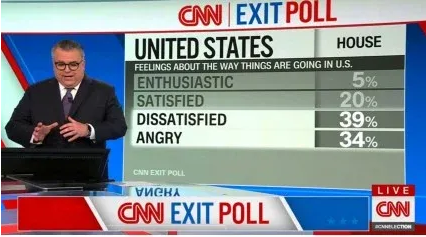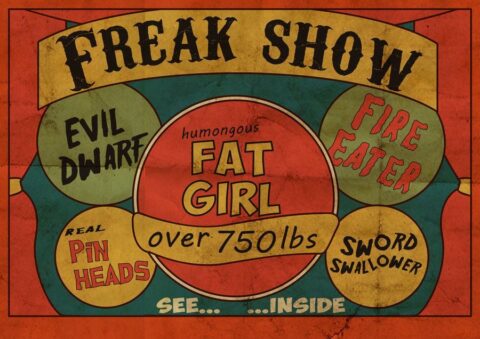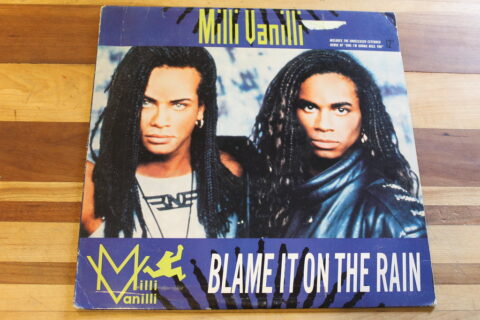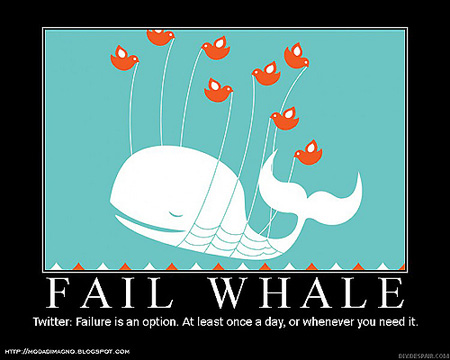As the voters went to the polls on Tuesday, it was easy to find doom-and-gloom-mongering among Democratic stalwarts and most of the mainstream media (BIRM), and chest-thumping triumphalism on the right. Both sides seemed to agree that the outcome was going to be somewhere between a red landslide and a red wipeout. So … how do we square the expectations of both sides with what actually happened? Chris Bray makes an attempt:
Eight percent uptake of the much-touted bivalent booster, 75% wrong track sentiment, pretty good night for the party in power. Multiple signs of a total loss of trust and respect for the existing order equals a decision to more or less stay the course.
Tribalism is the first explanation, sure. If you shat on a sidewalk and ran it for office with a D behind its name, Democrats would vote for it; if you shat on a sidewalk and ran it for office with an R behind its name, Republicans would vote for it. John Fetterman is headed for the United States Senate. Go ‘way, I’m ‘batin’.
And I agree with the argument that Republicans didn’t offer much of a plan or a vision, a premise you can check by reading Kevin McCarthy’s Commitment to America. More mush from the wimp.
But the other thing, and you can argue with me about this, is that the society of the spectacle madness of messaging without regard to reality actually achieves its purpose, no matter how absurd it is. We have to add $3 trillion in extra debt-funded spending to the economy to reduce inflation! If you vote Republican, they’ll kill our children!
Amazingly, this turns out to work pretty well. The available evidence suggests that we have a sizable population that cannot assess fact claims. I propose that we test this with sample messages to voters: If you vote for bubblegum trees, the sky bees will give you a diamond-crusted ribeye! (Ohh, I have to vote for bubblegum trees!) If you’re out in public, look to your left; then look to your right. At least one of those people thinks Karine Jean-Pierre makes some pretty good points.
Sarah Hoyt strongly believes that the busy midnight vote-finders of 2020 were just as busy on Tuesday night:
As I write this late on the 8th, the tsunami is resolving itself into a wavelet.
Or rather, the tsunami has been overfrauded into a wavelet. And it might be frauded away to a Dem win before I wake tomorrow.
This shouldn’t be a surprise to any of us who were awake and remember this:And we know damn well it was a Trump landslide before that.
So for the Republicans to have picked up any seat, this was the tsunami to end all tsunamis.
I know the usual idiots are out there, already saying “It was abortion: the Womyns came out in force to vote dem.”
Are there women who are single ticket abortion voters. Sure. Most are older than I and are determined to make sure their actions and choices are validated a posteriori. They’re an ever dwindling minority. Married women vote more and more for the right every time. Single women? Who knows? But I suspect there’s been a shift in that too after the last too years. And most of them don’t see that career path ahead they once did.
Then there’s the other bs which is of course “The people don’t want to be free.” That’s bs. The people, every time they can express their displeasure do so. But having the vote taken away from them via fraud means THEY each individual thinks he or she is alone.
Things like “Let’s go Brandon” sweep the nation, but there’s no major legal or financial movement to protest the fraud, because each person thinks “I guess all these idiots are so beaten down they like beaten down, and I’m the only one who is angry.”
Meanwhile the perpetrators know what the people think, and erect barricades in DC to protect themselves from the anger they sense but can’t seem to bring out into the open.
Yes, we’re getting the house, and probably not the senate. Which means a good five/six seats fraud. I’m in a group right now with people crunching numbers, and the fraud is evident. The races the democrats cared out got flipped by turning just those votes for the dems. That’s the flexibility of Dominion at work, and the way they can turn a vote into the other.
At Founding Questions, Severian is appropriately sanguine about the notion of “adjusted” or “fortified” ballot counts in disputed races:
So the “elections” were fun, eh? By far the best “news” from the Dissident perspective is that they did, in fact, pull out all the stops for S-s-s-Strokey. As I think it was Based 5.0 who quipped below, it looks like dual-passport-holding Muslim carny barkers aren’t going to be making America great again. Here’s hoping they’re stupid enough to fall for the “Dr. Jill” trap twice — now they’re stuck with Strokey the way they’re stuck with Tapioca Joe, because Giselle is Dr. Jill on steroids (perhaps literally). Eh, Dr. Jill had 40 years in [Washington, DC] to get a taste of the finer things; Giselle’s price is probably far lower. But until Strokey resigns for health reasons and is replaced […] the image of a tatted-out, brain-damaged hobo in a hoodie shuffling around the Senate floor is so on the nose, no novelist would dare use it.
[…]
I bet if we look back on it, we’ll see the state (lowercase s) Media freaking out first, dragging the Official State (capital S) Media with them. It makes sense, given the perverse incentive structure of the Media. Stick with me here:
Joe Schmoe (D) is running for Congress in Flyover State. Obviously The Media wants him to win, because (D). And they’re sure he’s going to, because his opponent is some “ultra-MAGA” yahoo. But Reality is what it is, and suddenly the yahoo is getting closer and closer …
At that point, The Media’s perverted incentive structure kicks in. The “reporters” at the biggest local rag in Flyover State, the Toad Suck Times-Picayune, only care about one thing: Getting the fuck out of Toad Suck, trading the Times-Picayune for a slot somewhere higher up the chain. Now, there are only two ways to do that: Be a hard-hitting, straight-shooting newshoun …
HAHAHAHAHAHAHAHAHAHAHAHA!! Oh Jesus, I’m sorry, I thought I could type that with a straight face, but I can’t. Give me a minute …
… ok, there’s only one way to move up in The Media, and that’s by proving yourself a more zealous cultist than the next guy. So our Heroic Journalist starts doing what he thinks the Inner Party wants, which is of course “propping up Joe Schmoe for all he’s worth”. But here’s the rub: He’s not privy to what the Inner Party actually wants. Of course he’s not; after all, he’s riding a desk at the Toad Suck Times-Picayune. And of course everybody in a similar position, nationwide, is doing the same thing …
… but they’re all at least kinda sorta privy to the real polls that come down from the big organizations (recall that there are maybe three companies that control all the newspapers in the US), and so he knows things are looking grim for Joe Schmoe. More importantly, he sees that Tapioca Joe himself is out stumping for Democrats, and not in battleground states — they’re putting Brandon out there in supposedly safe Democratic districts.
So our man at the Toad Suck Times-Picayune consults his own personal political tea leaves, and he concludes: We’re gonna lose. The “red wave” is real. So again, he starts doing what he thinks his masters want, the thing he thinks will get him noticed at the higher levels: He admits the truth, or as much as he personally can stomach, and starts laying in the groundwork for #TheResistance, same as in 2020. Oh, Kari Lake is ahead 8% over Abortion Mouse there in AZ (give Ace of Normies this, he coins a good nickname), well obviously that’s because of bigotry MAGA yadda yadda and don’t forget the Russian hacking!
But here’s the problem with that: It does get him noticed by the Big League club, but in the exact opposite way. So long as everyone stays on point, you can brazen it out through the inevitable “fortification”. Had everyone stayed on point, a “worryingly tight race” — they’ll admit that much, for verisimilitude — can easily be turned into one of those 3am miracles the Dems are famous for. Hey, whaddaya know, all the mail in ballots were for Joe Schmoe. What a surprise.
But now that the Toad Suck Times-Picayune is running stories about the challenger being ahead, the Big League clubs have to at least acknowledge it, the school of fish effect takes over, and pretty soon you’ve got the entire Media in panic mode. Which has the further effect of making the freelance riggers even crazier, so that the regularly scheduled 3am ballot drop is being disrupted by mysterious “hiccups” at key locations — you know, “cyberattacks” and whatnot (why the fuck is a voting machine connected to the internet in the first place?), and so on, plus all the mailmen and so forth dumping a whole bunch of ballots from red districts into the nearest streams, culverts, and landfills. Jimmy Hoffa is probably up to his eye sockets in Republican ballots out there in the foundations of Giants’ Stadium…
And so the weird shit we see above, and the odd “had a Narrative all ready” vs. “are clearly scrambling” coverage of different contests.
I can’t think of a better way to really shore up the idea that ALL elections are rigged than that. Wait a minute, the “red wave” was on last week. You guys admitted it. Early Tuesday afternoon, every talking head on tv looked like he was weaving a noose under the “news” desk; you’d expect “journalists” hanging from the rafters by 7pm.
But … ooops! Short of actually being caught on camera throwing Republican ballots in a bonfire, or openly xeroxing Democrat ones — and it’s only mid-morning of the day after, give it time — I can’t think of a clearer way of announcing that it’s ALL rigged than that.



















